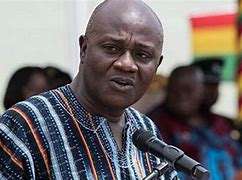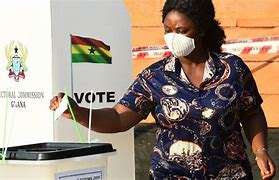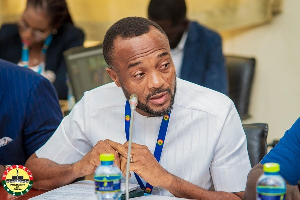Ghana, a beacon of stability in a turbulent region, has consistently upheld democratic governance as a core tenet of its political landscape. Central to this commitment are the district local elections, a vital mechanism for decentralizing power and nurturing grassroots democracy.
These elections, a cornerstone of decentralization efforts, empower Ghanaians to actively shape policies that directly affect their communities. The decentralization of power ensures governance is not concentrated solely in the capital but extends to the grassroots level, embodying the essence of participatory democracy.
As Ghana prepares for the upcoming District Level Elections (DLEs) on Tuesday, December 19, 2023, with over 66,000 candidates vying for assembly and unit committee positions, the nation stands at the threshold of another chapter in its democratic journey. The statistics reveal a widespread interest in local governance, emphasizing the importance of these elections in shaping the grassroots fabric of Ghanaian democracy.
In the words of Kathleen Addy, Chairperson of the National Commission for Civic Education, active participation in the DLEs is paramount. Despite historical low turnout, Addy has urged eligible voters to prioritize these elections, recognizing the pivotal role local leaders play in addressing daily development challenges at the community level.

“Members of Parliament live and work in Accra; the President’s Office is in Accra; but the assembly and unit committee members live with us in the community and help to address our daily development challenges.”
Kathleen Addy
The Minister of Local Government, Decentralization and Rural Development, Dan Botwe, also urged electorates to fully participate in the elections to improve turnout.
“We know the turnout for DLEs in the country in previous years has been extremely low, but we are targeting at least 50 per cent turnout this time around, and we want all, irrespective of party affiliation, to go to the polls in their numbers on the day to cast their ballot”.
Dan Botwe
At the heart of Ghana’s district local elections is the empowerment of local communities. By electing representatives such as assembly members and unit committee members, citizens actively engage in the democratic process, holding local leaders directly accountable. This accountability fosters more inclusive and responsive governance, as elected officials become beholden to the needs and aspirations of their constituents.
The impact of these elections extends beyond the democratic process, significantly contributing to local development initiatives. Elected officials at the local level possess an intimate understanding of the challenges and opportunities within their communities. This localized knowledge allows them to tailor development projects to address the specific needs of their districts, fostering sustainable and community-driven progress.

Civic engagement is a key outcome of Ghana’s district local elections, instilling a sense of responsibility and ownership among citizens. Actively participating in the selection of local leaders motivates individuals to engage in community projects, contribute to local development, and hold elected officials accountable. This participatory approach establishes a symbiotic relationship between the government and the governed, laying the foundation for sustainable development.
These elections also play a pivotal role in promoting inclusivity and representation within Ghana’s political landscape. Efforts to increase women’s participation through affirmative action policies address historical gender imbalances in political representation. By ensuring diverse representation at the local level, marginalized groups, including women and minorities, gain a platform to voice concerns and contribute to decision-making processes.
Youth involvement in governance is another notable outcome, providing young leaders with opportunities to emerge at the local level. As a demographic often facing challenges in accessing political spaces, the district local elections offer a platform for youth leaders to gain valuable experience and contribute fresh perspectives to policy discussions.
However, challenges persist, with the politicization of local elections being a notable issue. Aligning candidates along national party lines can undermine the effectiveness of local governance, potentially leading to prioritization of party interests over community needs. To address this, ongoing civic education is essential, emphasizing the importance of electing officials based on competence and commitment to local development rather than party affiliation.
Transparency and accountability in the electoral process are crucial focal points for improvement. Measures to combat electoral fraud, promote fair competition, and ensure genuine representation of the people’s will contribute to enhancing the integrity of Ghana’s district local elections.
Ghana’s continued efforts to refine its local electoral processes, it exemplifies a commitment to democratic principles that can serve as a guiding light for the broader African continent. The evolution of local governance in Ghana holds the promise of further strengthening democratic institutions and fostering sustainable development from the grassroots up.
READ ALSO: “No King In Ghana”





















